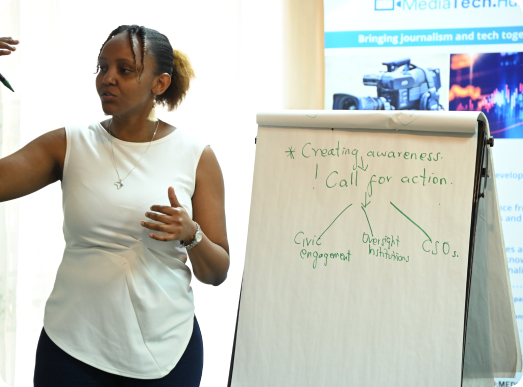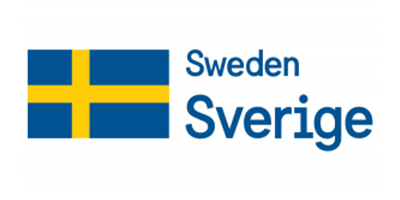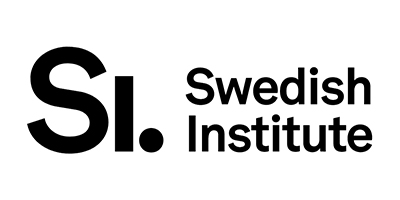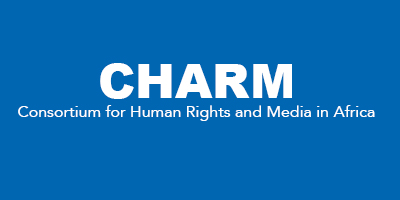The Action for Transparency (A4T) Project implemented by Transparency International Kenya and Fojo Media Institute with support from the Swedish Embassy in Kenya for the first time used a combination of media and technology to empower citizens including Journalists on monitoring the use of public resources in the Education and Health sectors in Kenya.The lessons learnt from the A4T project including the important role of technology in enhancing access to information and the need for journalists to use data for investigative reporting on corruption issues nurtured the idea of the Media-Tech Hub.
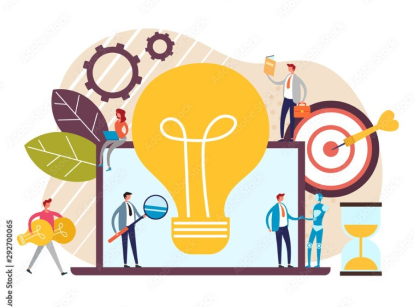
Media support
The Media-Tech Hub will also provide a mentorship and media support programme where experienced media practitioners are connected to novice journalists for knowledge transfer and support throughout the process of developing investigative and impactful stories. The Media-Tech Hub will engage experienced industry players from different fields to build the capacity of the journalists in different areas of interest for investigative journalists.
What problem or need does it address?
The Action for Transparency (A4T) Project implemented by Transparency International Kenya and Fojo Media Institute with support from the Swedish Embassy in Kenya for the first time used a combination of media and technology to empower citizens including Journalists on monitoring the use of public resources in the Education and Health sectors in Kenya. The lessons learnt from the A4T project including the important role of technology in enhancing access to information and the need for journalists to use data for investigative reporting on corruption issues nurtured the idea of the Media-Tech Hub.
The Media-Tech Hub is a sustainable model of ensuring continued improvement of existing technologies such as the A4T mobile App and knowledge platforms for use by journalists. The Media-Tech Hub will allow continued improvement, modification and further innovation of existing and new technologies for use by journalists for data mining, Public Expenditure Tracking and other methodologies for enhancing accountability in public service delivery. The Media-Tech Hub will also enhance the development of tools and make use methods that have previously proved useful in enhancing journalists’ knowledge and development of impactful investigative stories on accountability in public service delivery.
The 2019 Corruption Perception Index (CPI) shows that Kenya has stagnated in the fight against corruption with a score of 28 out of 100 and ranked position 137/180 countries. Since 2012, Kenya has scored between 25 and 28, out of 100, depicting slow progress in the fight against corruption. In the rankings, the country is listed at position 137 out of 180 countries and territories assessed. The CPI highlights the relationship between politics, money and corruption. The media offers a key route for information about governmental, administrative and business activities to be disseminated throughout society, and thus providing the public with a critical capacity to hold those in power accountable.
Access to relevant, timely and accurate information provides individuals with the knowledge required to participate effectively in the democratic processes in any democratic society. Access to information fosters openness and transparency in decision-making where an informed public is also likely to be vigilant against corruption within and outside of Government. Media remains a critical player in the fight against corruption with its significant contribution towards enabling access to information, enhancing transparency and demanding for accountability from public officials.
To harness the strengths of an informed citizenry through effective use of media in its various forms, the Media-Tech Hub provides a unique opportunity for leveraging the use of media and technology to advance openness and empower journalists to do more in the fight against corruption using safe and innovative technologies.
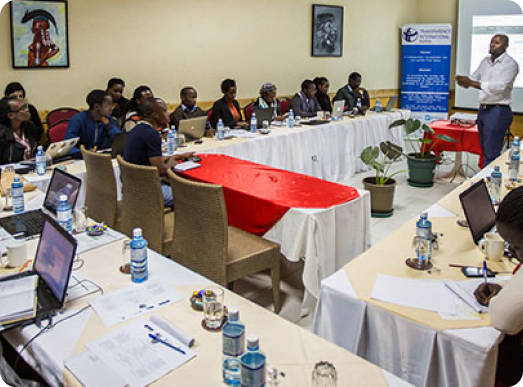
Target area and beneficiaries
The Media Tech-Hub will be implemented in Nairobi, the Capital City of Kenya targeting Journalists (mainstream, freelance, bloggers, student and citizen) and innovators (software developers, researchers and creatives) who will work together to enhance existing and create innovative tools for promoting transparency and accountability in delivery of public services through accurate and effective media reporting. The journalists attached to the Media-Tech Hub will benefit from availability of tools and data to expose corruption in public service delivery.
The Media-Tech Hub will benefit Civil Society Organisations, oversight institutions and accountability players to leverage exposes by media to demand for accountability and hold those responsible for mismanagement and embezzlement of public resources held accountable.
The exposure of corruption and subsequent demand for accountability will result in reduced corruption thus having a positive impact on enhanced public service delivery and reduction of poverty among the most marginalised including: women, children and the elderly.
Expected results and how they will be measured
The results to be expected from this engagement will include:
- Media-Tech Hub Innovative Space
- Enhanced, Modified and Developed innovative tools for use by Journalists
- Online knowledge platform available to journalists for continues professional development;
- Enhanced capacities of journalists to report on corruption promptly and accurately;
- Mentorship programme enabling the transfer of knowledge and skills;
- Improved quality of stories exposing corruption.
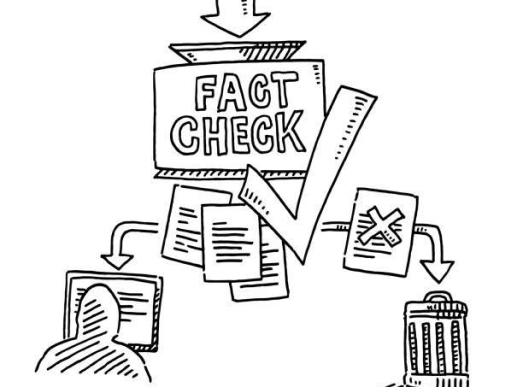
Sustainability
The Media-Tech Hub is a sustainable method of ensuring continued improvement, modification and further innovation of existing and new technologies for use by journalists for data mining, Public Expenditure Tracking and other methodologies for enhancing accountability in public service delivery.
The Media-Tech Hub being an online and physical space will allow a pool of development partners and information, communication and technology-based, and media organisations to contribute in supporting by different aspects of the hub in furtherance of their work. This will be especially so in view of the many public sectors and market-oriented solutions that could be impacted positively by use of innovative solutions in media support work.
The project will make use of already existing partnerships and coalitions to enhance its relevance and sustainability through coalition building. This will include a strong knowledge exchange programme under the Transparency International Global Movement, collaborations with the Office of the Auditor General in Kenya who together with TI-Kenya have an MoU on joint development of a Citizen Audit Accountability Framework and the Ethics and Anti-Corruption Commission in Kenya to enhance already existing complaints handling systems.
Relevance
TI-Kenya and Fojo have partnered closely in development work enabling the exchange of knowledge and skills between the partners and stakeholders in Kenya and Sweden in promoting investigative journalism towards enhancing accountability in the Education and Health Sectors.
Kenya’s so-called Silicon Savannah has been ranked the second leading innovation hub in sub-Saharan Africa by the World Intellectual Property Organisation in its latest Global Innovation Index (GII) 2019 report.
The project will greatly contribute to a growing interest in using innovation to achieve economic and social development. The enhanced use of media and technology for social change is however an area not previously exploited and where the possibilities are limitless.
Kenya is among the leading countries in the use of web and mobile technologies, with close to 112% mobile penetration with the uptake of smartphones at 44% and internet usage of close to 50% of the population. Kenyans also have a high presence on social media platforms at 49% of the population.
